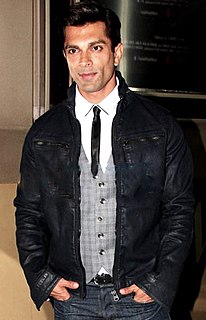A Quote by Mona Eltahawy
I chose to wear the hijab at age 16, soon after my family moved from Britain to Saudi Arabia.
Related Quotes
My family moved to Saudi Arabia from Glasgow when I was 15. Being a 15-year-old girl anywhere is difficult - all those hormones and everything - but being a 15-year-old girl in Saudi Arabia... it was like someone had turned the light off in my head. I could not get a grasp on why women were treated like this.
I am originally a surd who was born in Delhi in 1982, just two years before the Sikh riots, so all my childhood pictures are in baby frocks with ponytails, as my parents wanted to hide the fact that I was a Sikh boy, given the riots. My dad worked for a travel agency, and we soon moved to Saudi Arabia.
If you ask a Saudi Imam why women in Saudi Arabia can't drive, he'll say, 'Because Islam demands it.' But that's absurd, because - first of all - Islam demands no such thing; and secondly, the only country in the world in which women can't drive is Saudi Arabia. The inability to understand the difference between a cultural practice and religious belief is shocking among self-described intellectuals.





























